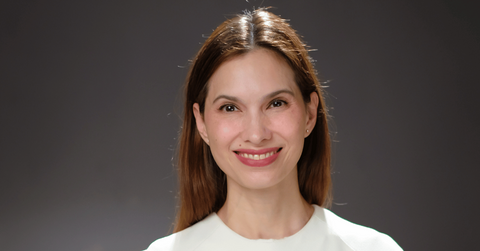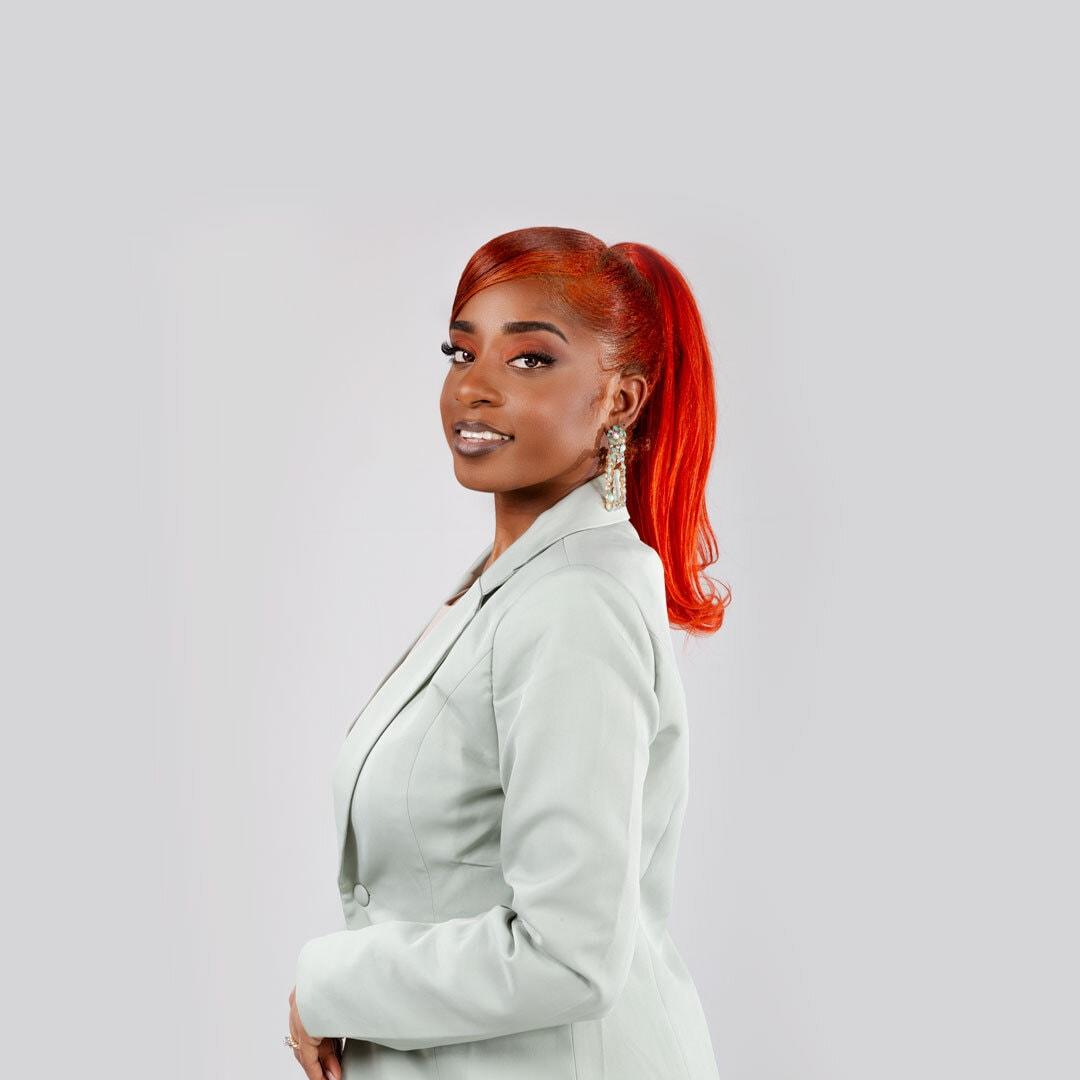Plastic could potentially be the death of us all.
But thanks to people like Nanette Medved-Po and her organization, Plastic Credit Exchange (PCX), we have a fighting chance of making sure this world lasts for thousands more years instead of decades. Nanette is the Founder of PCX and Chairperson of HOPE, Inc., and focuses on healing the world by helping businesses turn plastic into plastic credits. She has been honored as the recipient of the prestigious Asia Society’s Game Changer Award (which has also been awarded to Malala Yousafzai and Naomi Osaka) and her company, PCX has diverted more than seven million pounds of plastic waste from nature, invested over $2.7 million into the plastic circular economy, and has driven 54,000 tons of carbon reduction from coal replacement!
Nanette is recognized as a Climate Hero for creating environmental programs that address the plastic problem humans are facing today. She has also launched her own initiatives in public schools that provide agriculture interventions for smallholder farmers.
Her Agenda had the opportunity to speak with Nanette to learn more about her organization, being an entrepreneur, and what we can do as businesses to decrease plastic use.
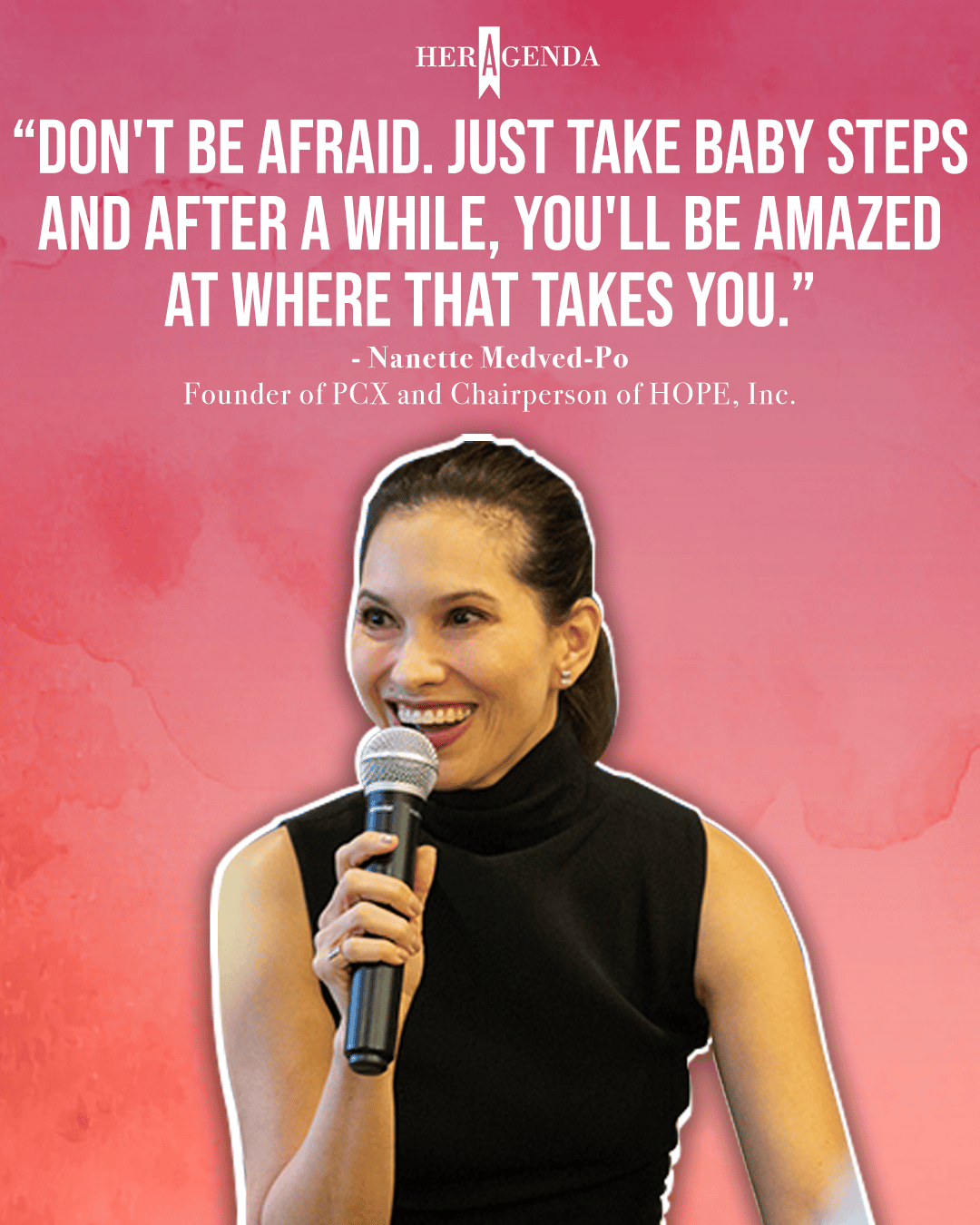
Her Agenda: What inspired you to start saving the planet?
Nanette Medved-Po: Growing up mostly in and around southeast Asia but specifically in the Philippines, we feel the impacts of harm to the environment very intimately. We are on the front lines of the climate crisis. Lots of disasters, typhoons, etc. I’m sure in your research, you’ve seen that the Philippines is the third worst offender of ocean plastic pollution. So, this is something that we experience in our everyday lives, and being on the board of WWF (World Wide Fund), I get that very scientific sort of hardcore data that backs up just how bad things are and how bad things are going to get – and so, I don’t think it’s unique that I care about the environment. I just happen to be in a position to do something about it given my little bit of a platform.
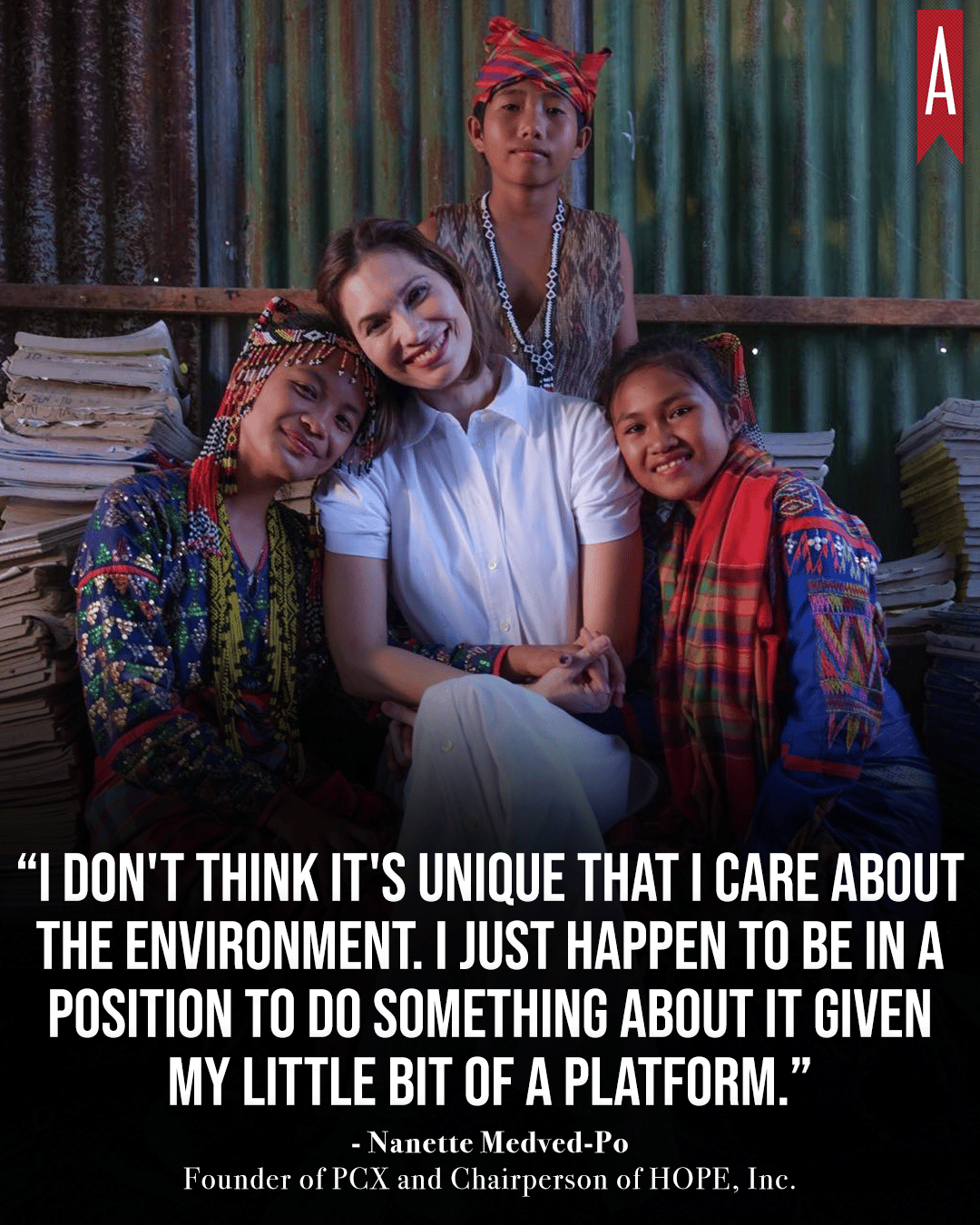
Her Agenda:Love that you pointed out, “ I just happen to be in a position to do something about it,” because a lot of people don’t realize that most of us are in positions to do something or contribute in some way, shape, or form. What is one mandatory thing that people need to know about environmental issues?
Nanette Medved-Po: Well, it’s very complex. A lot of folks tend to see the headlines or the sound bites and assume that the solutions are easy or that the demons are one bucket of people. But the truth is these problems are highly complex and I think that there should be some understanding that the solutions are going to be very varied – and in the case of plastic specifically, people say, ‘oh well we should just recycle or we should just get rid of plastics all together’ and it’s not that easy. I’d be the first one to support any perfect substitute for plastic so that we don’t have to deal with it anymore but I also realize that isn’t just going to happen anytime soon so I think we need to be very, very aggressive in coming up with solutions on how to deal with it since it’s here for a bit. Even if we do find the perfect solution tomorrow, there’s still 80 years worth of plastic consumption that is polluting the environment that we need to take care of right? People need to understand that this is very complex and that they should have a little bit of patience and pragmatism when it comes to figuring out what the solutions are going to be.
Her Agenda:You mentioned it’s very complex and challenging so what has been your biggest challenge building your organization and how did you overcome that challenge or if you’re still overcoming it?
Nanette Medved-Po: Yeah, I think we’re still overcoming it. The truth is, the world is pretty broken. Pick your armageddon! There’s all sorts of things going on at the same time and plastic pollution is just one of them and when we started to really gain momentum, the pandemic hit and nobody’s wanting to hear about that. Everybody’s just focused on survival and trying to figure out the coronavirus. So, we’re competing in a very crowded space for attention, that’s one thing. But there are also all the other things that people are dealing with whether it’s coronavirus or it’s climate change, right? Dealing with the carbon issue. We are competing in a very, very noisy world. So I think that continues to be a challenge. However, we’re very fortunate that the UN (United Nations) is moving quickly and with full conviction on the plastic pollution crisis and they have a much larger soap box to speak from and everybody listens to them. So the fact that they’re moving so urgently on this issue helps to cut through some of the noise for us as well and draw some attention to this issue.
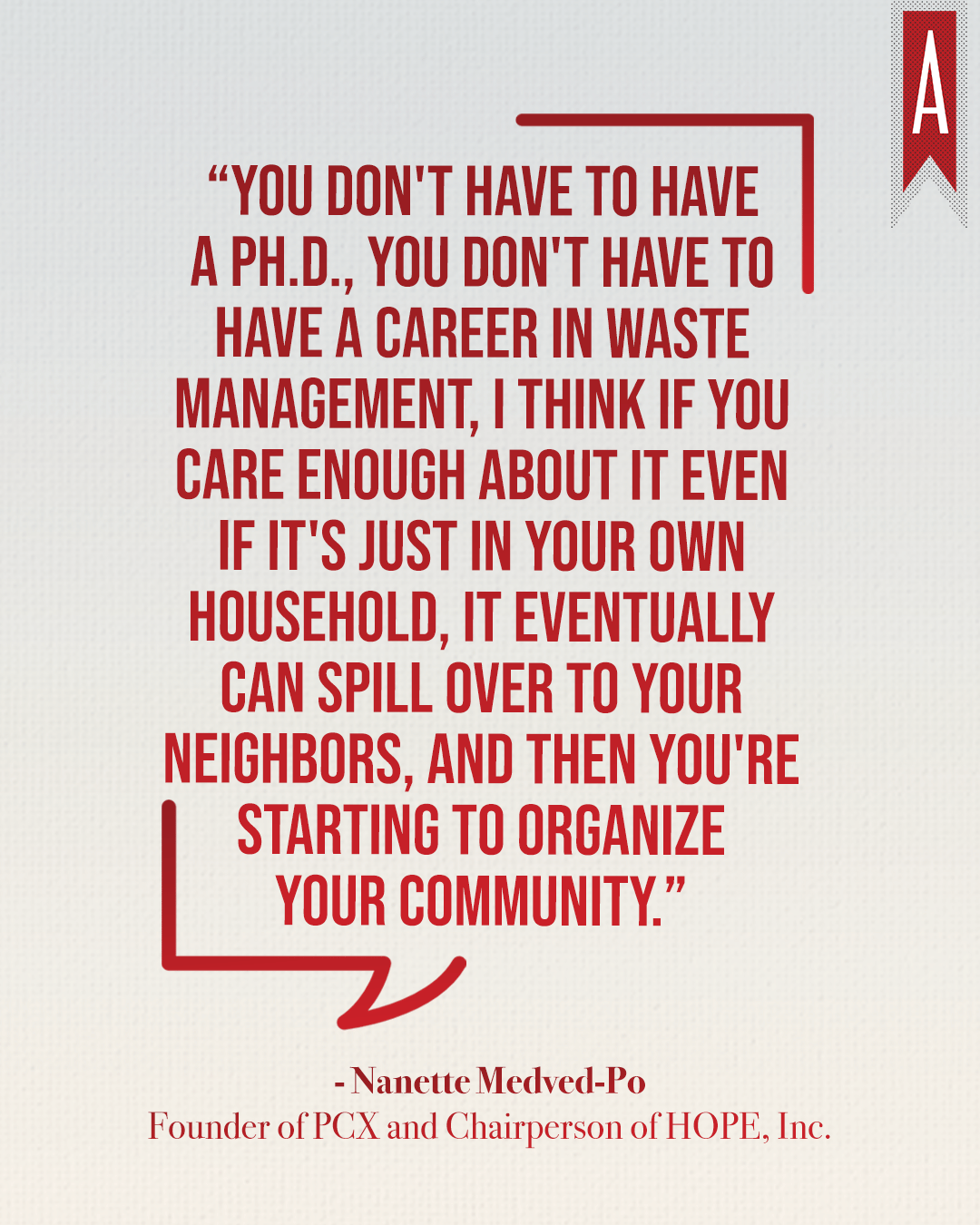
Her Agenda:You mentioned that there are about 80 years of backed-up plastic. That’s crazy! And it just made me think that there are probably over 10,000 product-based businesses in the world and more keep popping up every day. So do you have any advice for product-based companies that use plastic?
Nanette Medved-Po: Yeah, let me back up a little bit on that 80 years and put that into context; so the estimates on the amount of plastic that’s been produced in the past eight years is anywhere between 8-9 billion tons of plastic that will threaten the environment or already does to a certain extent. If you think about that debt, that is huge, right? And that’s only increasing because plastic usage is increasing. We really need to think about how we deal with this because if we do nothing by 2050, there’s going to be more plastic than fish in the ocean and that is a frightening thought. Regarding product-based businesses, the truth is there is such a thing as essential plastics and we fully recognize that, but there is a whole swath of usage that is unessential and I think that any business that has unessential plastic in their supply chain should absolutely find a way to transition out of that as soon as possible.
I realized there are some constraints and again, it is a complex situation, but I really would encourage them to transition out of plastics – and for those who are in the essential plastic space, think about the medical industry or pharmaceuticals, please have a plan to deal with plastic post-consumer because that’s what we’re worried about. Plastic plays a wonderful role in food security and safety, and health applications when it’s in use but when it’s post-consumer, what do you do with it once you throw it out? It gets stuck in the environment. So, if you can have some sort of extended producer responsibility plan within your company, whether voluntary, there are a bunch of countries around the world that are doing mandatory EPR (Extended Producer Responsibility), which is fantastic. But for anyone who isn’t, especially in large markets like the US, if they can think of voluntary programs within their companies to take responsibility post-consumer for their footprint – it doesn’t need to be the exact piece of plastic that was produced in their factory – but at least for their footprint, that’ll go a very, very long way in solving this problem. I know that my origin company is HOPE so I don’t mean to be optimistic by default, but the truth is, we do believe, given the tangible nature of plastic, that we could be the generation that actually solves the plastic pollution crisis. We do have the tools today to deal with it. It may not be the perfect solution but it is a solution to make sure that it doesn’t threaten the environment.
Her Agenda: On the topic of business, especially as a woman business owner in the environmental space, have you faced any challenges while building this organization, raising funding, or getting partners? If so, what do you believe has helped you to overcome these challenges?
Nanette Medved-Po: I’ve been super lucky so far. We have our legacy business in southeast Asia so I haven’t done a whole lot of pitching in the U.S. or trying to advance the initiative in the U.S. So not sure how that’s going to go but we will be doing that more and more now especially because the U.S is the largest producer of plastic waste per capita in the world. We feel like we should go there, but so far, we’ve been very fortunate. I think the people in our neck of the woods tend to really understand the plastic issue and are happy, believe it or not, to see us when we come because they have made super public commitments that, ‘we’re going to do this by 2030 or we’re going to do this by 2025,’ and have absolutely, no way to get there! So, when we come in the door, they’re like, ‘Hey, you’ve got an idea. Let’s try it because we’ve made a commitment and we don’t know how to get there.’ So they’re super happy to see us and at least give us a try and so we’re very fortunate in that respect. However, as I said, I think we’re competing against a lot of other urgent issues that folks are dealing with whether it is just health and safety with Covid or their businesses recovering from the pandemic shutdowns or carbon. People are very, very focused on climate change right now. Although plastic does have a very strong contribution to climate change, it’s less direct than dealing with carbon. So, we are competing against a lot of other issues out there, but to your point, so far folks are listening at least in our neck of the woods. Let’s see! Maybe with articles and pieces like yours, we’ll get more attention in the west.
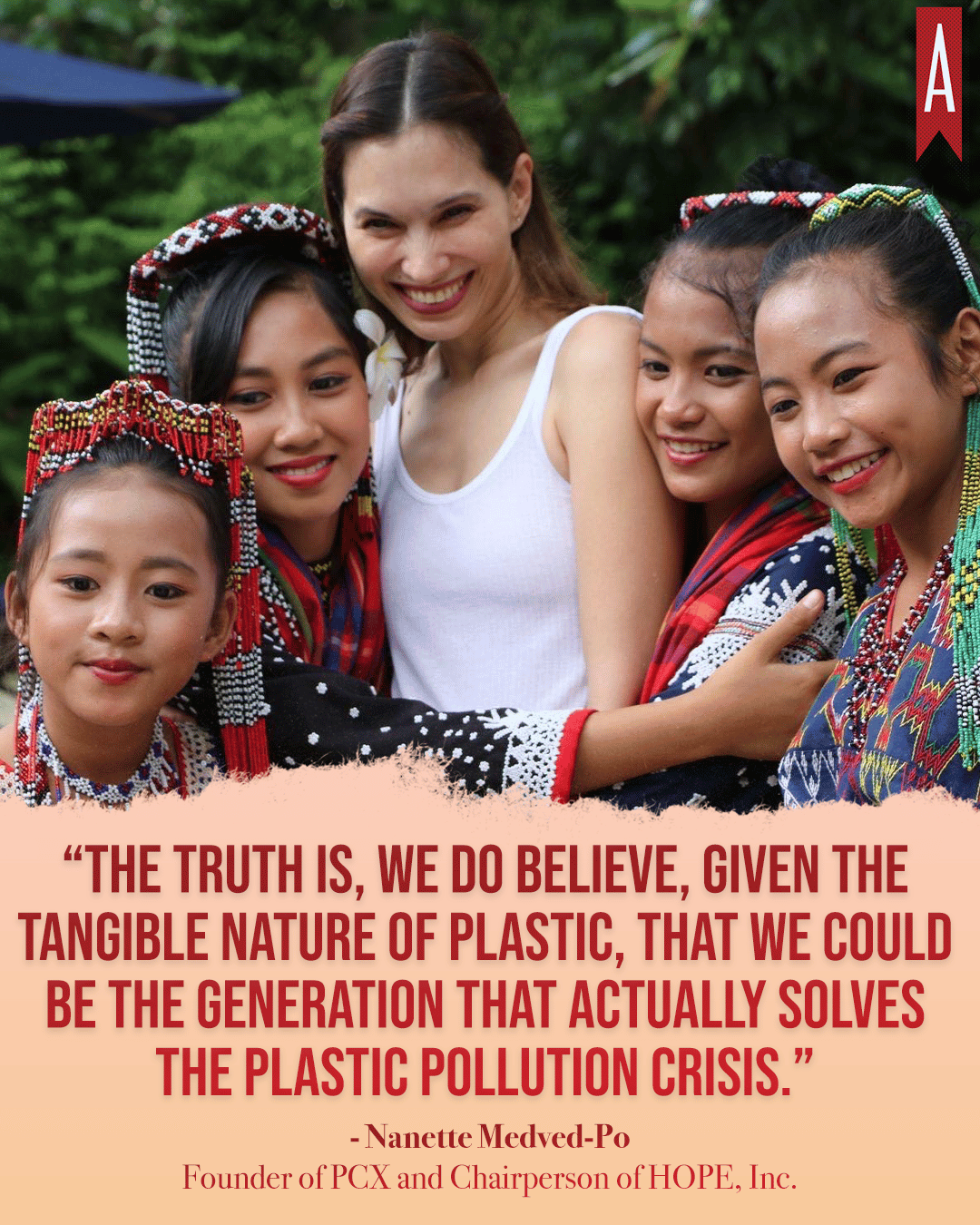
Her Agenda: I love to hear that you didn’t have that many challenges and it makes sense because business is all about solving problems and you’re solving a huge one. But for the entrepreneurs who maybe want to build an organization like yours or in the climate space, do you have any advice for those kinds of women?
Nanette Medved-Po: Oh my god, just go for it! I totally had no business being in this space. I knew nothing about it! It was like, ‘you’re going to do what!?’ right? I literally knew nothing about it, I just cared about it and I think that you don’t have to have a Ph.D., you don’t have to have a career in waste management, I think if you care enough about it even if it’s just in your own household, it eventually can spill over to your neighbors, and then you’re starting to organize your community.
Don’t be afraid. Just take baby steps and after a while, you’ll be amazed at where that takes you. So don’t be afraid!
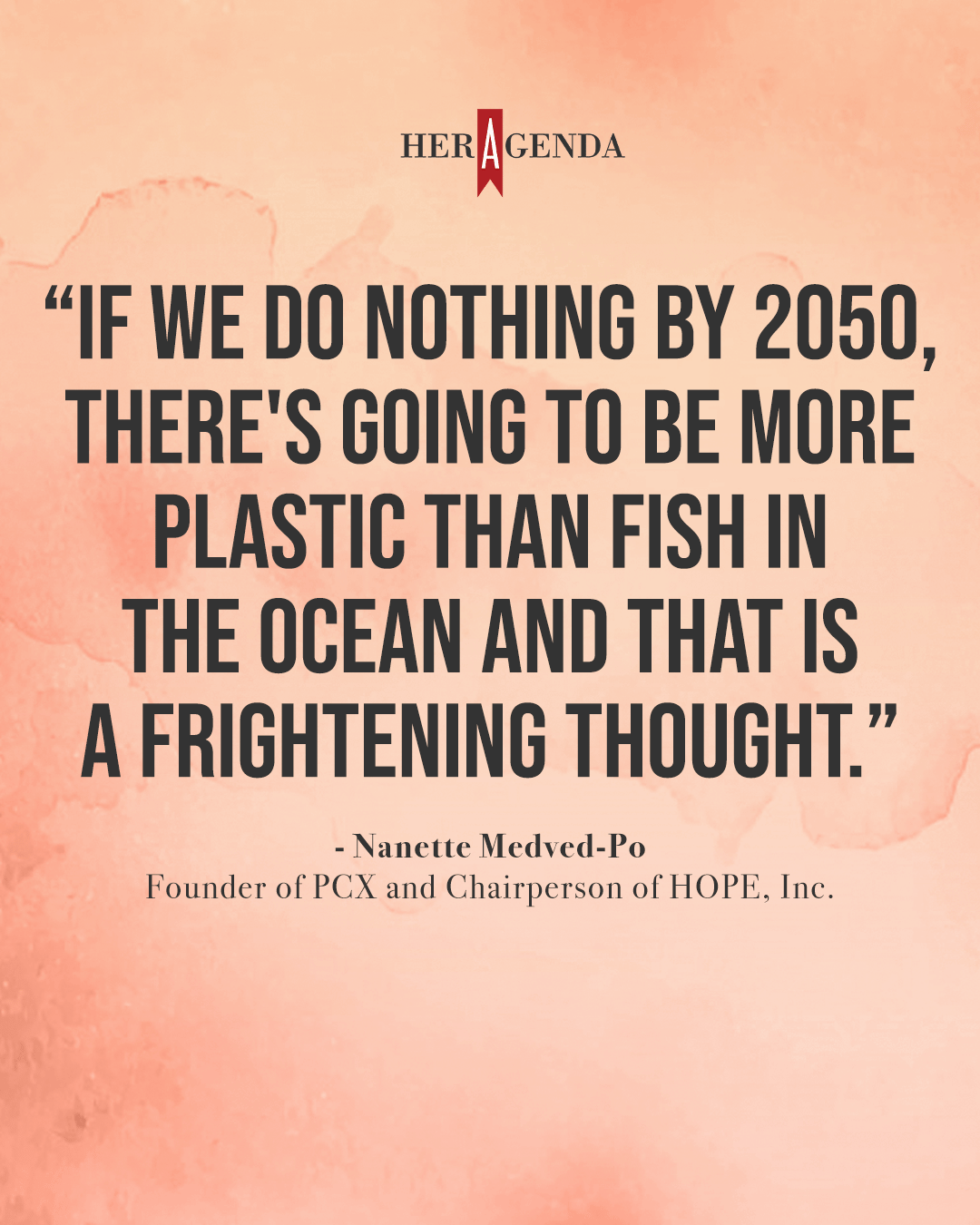
Her Agenda: What is the personal motto you live by?
Nanette Medved-Po: Try not to be a waste of space.
[Editor’s note: This interview has been edited for length and clarity.]

